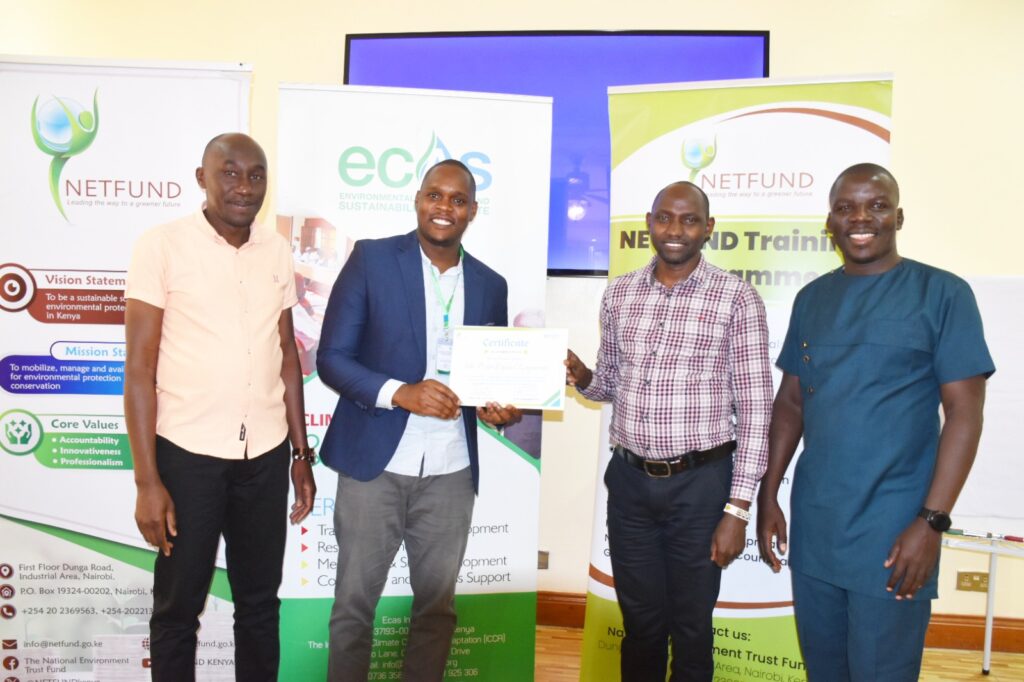
CONCEPT NOTE
INTERNATIONAL TRAINING ON WRITING AND PRESENTATION SKILLS TOOLKIT
COURSE BACKGROUND
In today’s complex and fast-paced policy and development environments, the ability to communicate clearly and persuasively is not a luxury—it’s a necessity. Whether drafting reports for donors, writing policy briefs for decision-makers, preparing field updates, or delivering presentations at stakeholder meetings, professionals must be able to express ideas with clarity, confidence, and impact.
Many practitioners, however, face challenges when turning technical knowledge into accessible content or delivering messages that truly engage diverse audiences. Issues like overly technical language, disorganized structure, weak visual support, or ineffective speaking styles can hinder even the most important messages from being understood or acted upon.
To meet this growing need, the Environmental Capacities and Sustainability Institute (ECAS) has developed this course to build essential written and oral communication skills tailored to environmental, governance, and sustainability contexts. This practical, hands-on training bridges the gap between knowledge and communication, empowering participants to write and speak with purpose, clarity, and confidence. Participants will work with real-world examples, receive personalized feedback, and walk away with templates and strategies they can immediately apply in their work.
COURSE OBJECTIVES OF THE TRAINING
By the end of this course, participants will be able to:
- Plan, structure, and write professional reports, memos, briefs, and emails.
- Tailor communication style and tone for diverse audiences.
- Present ideas with confidence and clarity in formal and informal settings.
- Use visual and verbal storytelling techniques to support key messages.
- Apply effective body language, voice control, and slide design in presentations.
- Receive and give feedback constructively in written and verbal forms.
WHAT YOU WILL LEARN
By the end of this intensive course participants will be able to have a clear understanding of:
- Key principles of clear and effective writing
- Structuring reports, emails, and briefs
- Adapting tone and content for different audiences
- Presentation planning and delivery techniques
- Slide design and use of visuals
- Public speaking and overcoming nervousness
- Tools for editing and receiving feedback
- Real-world applications through practice exercises
DURATION AND PROGRAM
TARGET PARTICIPANTS
This course is designed for professionals who regularly communicate technical, policy, or project-related information in written or spoken form. It targets government officers, NGO and civil society staff, environmental practitioners, researchers, project managers, and policy advisors who need to write reports, prepare briefings, or deliver presentations to varied audiences—ranging from communities to donors and high-level decision-makers. Whether you are seeking to sharpen your email writing, strengthen your public speaking, or craft compelling reports, this course offers practical tools for anyone who wants to improve the clarity, impact, and persuasiveness of their communication.
TRAINING STYLE
The modules will be taught through PowerPoint presentations, and lectures and will include a case study/field visit, breakout sessions, case studies and other interactive discussion components.
The course will also include a few guest speakers, both in person and via Zoom and other online learning platforms for overseas speakers. This provides useful real-world insights alongside the more theoretical aspects of the course.
The conference faculty shall consist of experienced decision makers, as well as practitioners and representatives from established educational and research institutions active around climate change, engineering and international development. Throughout the course, theoretical presentation of concepts will be moderated and more group discussions and plenary engagements will be optimized. PowerPoint presentations will be made by facilitators and resource persons, to highlight key concepts before embarking on group work.
TRAINING MODULES
| No | Module | Details | |
| 1. | Foundations of Effective Communication |
This module sets the tone by exploring the principles of clear and impactful communication across various professional contexts.
Topics:
|
|
| 2. | Professional Writing Skills |
Learn how to craft structured, reader-friendly documents such as reports, emails, and policy briefs.
Topics:
|
|
| 3. | Writing for Policy and Technical Audiences |
This module focuses on adapting technical content for different stakeholders while retaining accuracy and clarity.
Topics:
|
|
| 4. | Presentation Skills and Public Speaking |
Develop confidence and techniques for delivering impactful in-person or virtual presentations.
Topics:
|
|
|
5.
|
Visual Aids and Slide Design |
Support your spoken message with clean, professional visuals that make your message easier to understand and remember.
Topics:
|
|
| 6. | Feedback and Practice Sessions |
Participants will apply what they’ve learned through practical exercises and receive feedback on their writing and presentation delivery.
Topics:
|
|
GENERAL NOTES
- Training manuals and additional reference materials are provided to the participants.
- Upon successful completion of this course, participants will be issued with a certificate.
- We can also do this as a tailor-made course to meet organization-wide needs. Contact us to find out more: info@ecasiafrica.org.
- Payment should be sent to our bank account before the start of training and proof of payment sent to: info@ecasiafrica.org.
ABOUT ECAS INSTITUTE
The ECAS Institute designs and delivers independent and targeted training, research, and consulting services. Our work focusses on climate change and resilience building, carbon markets, renewable energy, nature-based solution, biodiversity conservation, agriculture and food systems, We are located in Nairobi Kenya and work across the African region. We have implemented training and research assignments in Kenya, Tanzania, Uganda, South Sudan, Somalia, Malawi, Rwanda, Congo, and South Africa. Globally, we have supported our partners from the UK, Denmark, Italy, Sweden, Germany, and USA.

